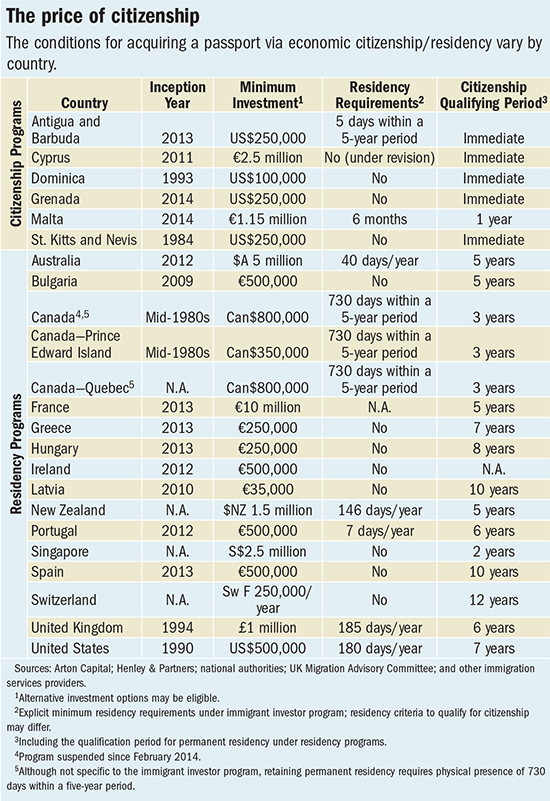https://canadian-immigration.Original post:ca/immigration-investor- program-quebec/
Investor candidates who demonstrate, by means of a test recognized by the Quebec Government that they have an advanced intermediate knowledge of French, are not subject to this maximum limit of applications.
The investment requires a one-time payment of CAD $220,000.
If you would like more information, please feel free to Contact Us. As there will be a strict quota in place, we recommend that you proceed with your application without delay so that we can have your application included in the quota.
The Quebec Immigrant Investor Program was created in 1986 by the Quebec Government to attract successful business immigrants to the Province of Quebec. To participate, you must meet specific Immigration Selection Criteria (see below), and be able to make a one-time payment of approximately CAD$220,000.
The following table summarizes the requirements for the Quebec Immigration Investor Program....
From IMFdirect:
Citizenship for Sale
A suitcase filled with multiple passports? That’s not just the stuff of spy movies anymore. Increasingly, a growing number of high-net worth individuals are looking to have a passport portfolio. This has led to a proliferation of so-called citizenship-by-investment or economic citizenship programs that allow individuals from all over the world to legitimately acquire passports.
The wealthy, especially in emerging market economies, see buying citizenship or residency rights as a means of greater global mobility (visa free travel in many countries), tax planning, and family security. In exchange, countries administering such programs receive significant financial inflows into their economies.
Indeed, offering citizenship in return for investment has been a “win-win” for some small Caribbean states. The substantial inflows of funds from these programs have helped boost employment and growth. Inflows to the public sector alone in St. Kitts and Nevis had grown to nearly 25 percent of GDP as of 2013.
Now more and more countries have joined the game. While all well and good, these countries face the critical challenge of preserving the credibility of their citizenship programs and weeding out the risks to governance and sustainability. In addition, small countries may also confront sizeable macro-challenges in managing large inflows.
Read more in this article published in Finance & Development.
